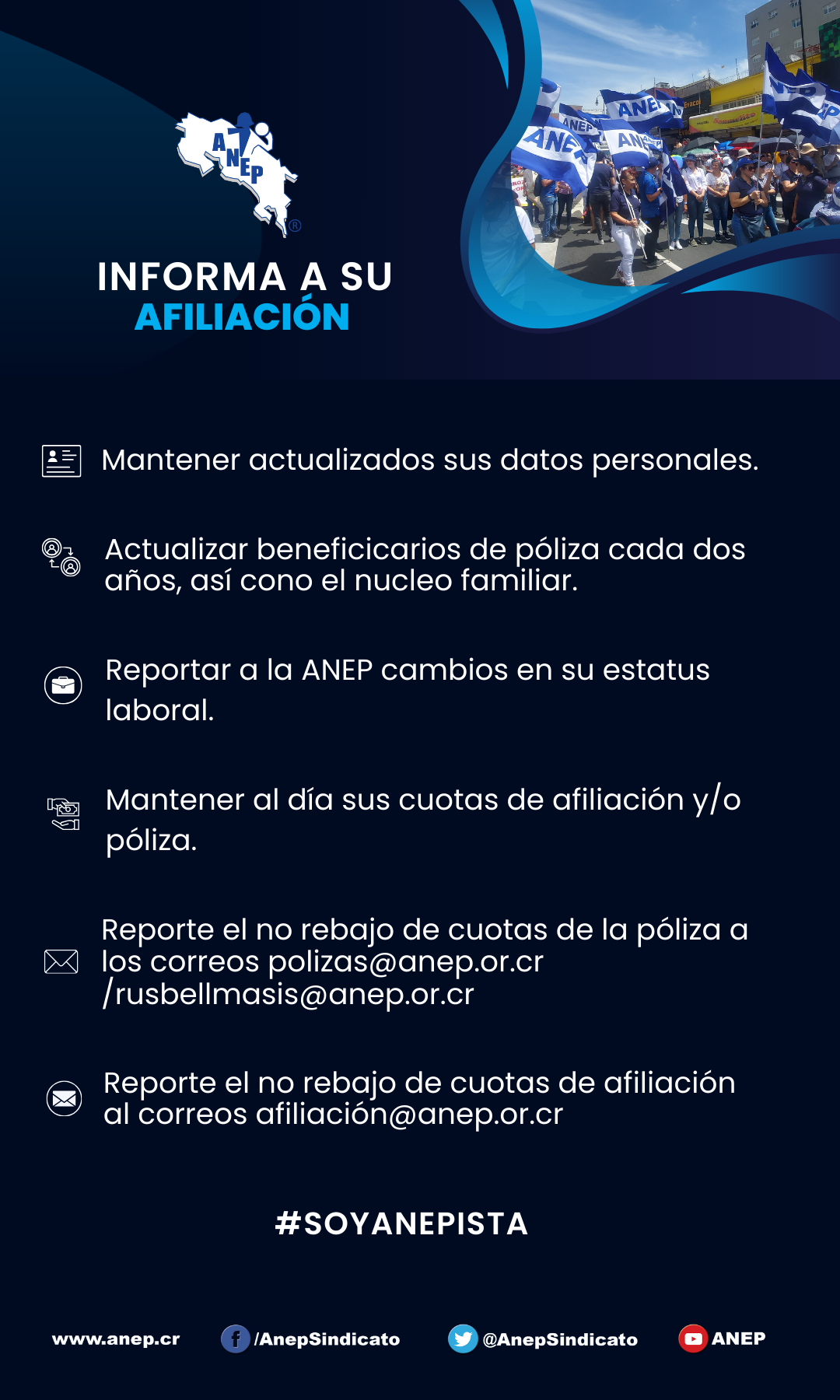Nota de www.anep.cr :El artículo solo se encuentra en inglés, pronto estaremos realizando la traducción.
________________________________________________________
Costa Rica Legislators Heading for Confrontation with ILO
19th October 2009, Banana Link
It was in September 2006 that trade unions first lodged a complaint with the European Union about systematic violations of trade union rights and the right to free collective bargaining in the Costa Rican private and public sectors. The unions asked for an inquiry into whether the country should continue to benefit from trade preferences granted for countries that abide by a series of international labour, human rights and environmental standards. A second complaint was lodged by the Costa Rican confederation CSJMP when trade preferences offered by the EU were up for renewal at the end of 2008.
In response, EU Trade Commissioners – Peter Mandelson and now Baroness Catherine Ashton – have consistently deferred to the International Labour Organisation and pointed out that the Costa Rican government has promised to make legislative reforms which will bring them into compliance with core ILO conventions. With support from British unions, CSJMP has sought a formal investigation by the EU itself: “GMB has long raised our concerns about widespread attacks in Costa Rica on trade union rights and freedoms, and systematic attempts by Government and employers to undermine democratic trade unions in the country by supporting non-union associations, intimidating and bribing workers against joining independent unions who will protect their interests and safety. Trade unionists have been subject to attacks and dismissals. Such practices are clearly in breach of ILO conventions and the terms of GSP+ Agreements, and it is having a devastating effect on the operation of independent trade unions in the country.”
In a letter to CSJMP today, Baroness Ashton repeated that “the ILO has urged the Government to take concrete steps to address these concerns, offered technical assistance to do so and asked the government to report later this year on the steps taken and future plans including a detailed time-line.”
However, the ILO is likely to find that the Costa Rican government has systematically avoided taking concrete steps to conform to ILO Convention 98, has failed to ratify Conventions 151 and 154 as it had promised, and is now looking to legitimise the role of non-union associations in a new package of labour law reforms. What’s more, after ten years of promising to tighten up laws guaranteeing trade union freedom, the Parliament voted against the Trade Union Freedoms Bill on 6th October.
For Costa Rican President Oscar Arias, who made solemn promises at the 2006 International Labour Conference that everything was on the right track, efforts to keep his country off the so-called ‘black list’ of countries that are in systematic breach of commitments on international labour standards look doomed to fail.
Source: Banana Link









